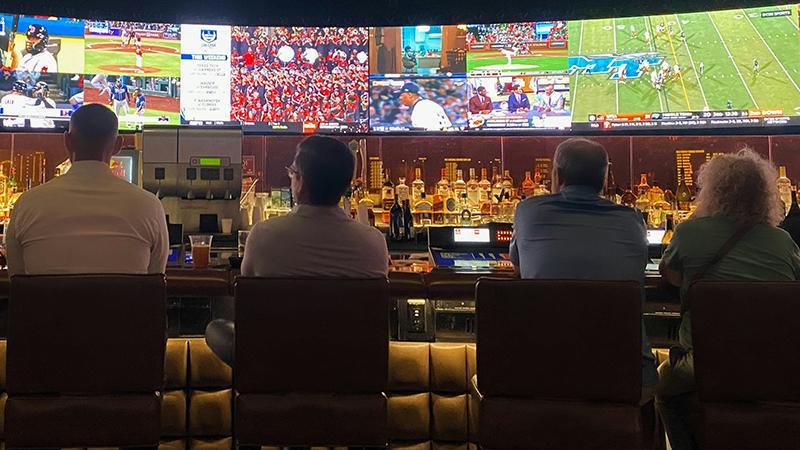Illinois sports betting industry under legislative review: Balancing growth and regulation

Since legalizing sports betting in 2019, Illinois has become a major hub for wagering, attracting millions of bettors and generating significant state revenue.
As the market matures, state lawmakers and regulators are fine-tuning the industry’s framework to ensure growth while addressing challenges like market competitiveness and responsible gambling. These changes could position Illinois as a leader in the American sports betting landscape or risk hindering progress and slowing down momentum.
The Current Sports Betting Landscape in Illinois
Illinois is the sixth-most populous state in the U.S., while Chicago is the country’s third-largest city, so it was only a matter of time before sports betting was legalized in the Prairie State.
The SB 690 bill legalized Illinois sports betting in June 2019, with the first in-person wager placed in March 2020. Illinois betting apps came online in June 2020 and have proven extremely popular with the state’s sports-loving residents.
According to the Illinois Gaming Board (IGB), the state’s sports betting market experienced remarkable growth in 2024. When the National Football League (NFL) regular season began in September, Illinois’ sports betting operators took $1.31 billion worth of wagers, a staggering 21.5% increase year-on-year. That eye-popping sum resulted in a new record for adjusted gross revenue, a cool $136.4 million.
Legislative Updates and Regulatory Changes
Illinois lawmakers continue reviewing the state’s sports betting industry’s structure to optimize tax revenue and address public concerns. Last year, the state approved a first-of- its-kind progressive tax system, which will come into effect in 2025. Currently, operators pay a flat fee of 15%. However, the new taxation system increases tax on adjusted gross receipts to between 20% and 40%.
Although that seems high, Illinois sports betting companies will still pay less tax than those in other states. For example, a New Jersey lawmaker has proposed a bill that increases taxes in the Garden State to 30%. Just over the Hudson River, New York imposes a 51% tax on gross gaming revenues.
Additionally, the Illinois Gaming Board recently implemented stricter advertising and marketing rules for operators to follow. The new guidelines mirror those in Massachusetts and Ohio, which are considered among the most stringent. The rules include a ban on advertising on college campuses or in any college media, not creating adverts that could appeal to those under 21 years of age, and banning the use of words or phrases like “free,” “cost-free,” or “free of risk.”

The Economic Impact of Sports Betting in Illinois
Sports betting has become a reliable revenue stream for Illinois. In fiscal year 2023, the state collected $949 million in adjusted gross revenue, which resulted in $109 million in tax revenue. In fiscal year 2024, sports betting-related tax revenues increased to $166 million.
Introducing the previously mentioned progressive taxation system is expected to increase the state’s take, although it could have some drawbacks. Some operators have announced plans to introduce surcharges on winning bets in states that tax above 30%, including Illinois. In turn, this could deter bettors and stifle market growth.
Comparing Illinois to Pennsylvania: A Revenue Benchmark
Pennsylvania offers an interesting benchmark for potential growth. The Keystone State has a population and demographics similar to Illinois ‘; its sports betting industry has thrived since legislation in 2018, two years earlier than Illinois’. In 2023, Pennsylvania handled $7.3 billion worth of wagers, which generated $821 million in adjusted gaming revenue and $186 million in tax revenue. That last number is almost double that of Illinois for the same reporting period. Why the disparity?
First, Pennsylvania has streamlined its licensing process, which has attracted a diverse array of operators. Many of those operators offer a range of products, including online casinos and online poker, enabling them to cross-sell and attract customers to their sports betting platforms.
Furthermore, Pennsylvania has aggressively marketed its sports betting industry, with many operators forging partnerships with major sports teams and leagues, which has increased their visibility.
Challenges Illinois’ Sports Betting Market Faces
While the Illinois sports betting industry has clearly achieved significant milestones, several challenges lurk in the background and loom on the horizon. Gambling addiction concerns remain a constant issue for the industry, not only in Illinois but globally. The Illinois Gaming Board continually reviews new protective measures, including a self-exclusion program, cashless wagering, and using some of the tax revenue to fund responsible gaming charities.
In addition, Illinois recently reinforced its prohibition on betting on in-state college teams, citing concerns about the integrity of amateur sports. Although this rule aligns with ethical considerations, it limits betting opportunities for Illinois residents. Furthermore, nearby states like Indiana and Ohio have more relaxed regulations and lower tax rates. Illinois must ensure its policies remain appealing to bettors and operators if they are to maintain its edge.
The Future of Sports Betting in Illinois
Illinois’ sports betting journey has gotten off to a solid start, and the state is exploring ways to
expand its gaming industry. Plans are afoot to introduce online casinos, which should open new revenue streams. If successful, this initiative could build on the momentum that sports betting has generated and position Illinois as a market leader.
However, the state must balance fostering a competitive market and maximizing tax revenue. Additionally, policymakers must pay attention to responsible gambling to help mitigate the social costs associated with having widespread gaming access.
Conclusion
The Prairie State stands at a crossroads in its sports betting journey. The upcoming reviews and regulatory changes have the potential to push the industry to new heights and generate much-needed funds for the state. However, these changes come with inherent risks that could damage the industry if not implemented carefully.
Illinois could learn from Pennsylvania by aggressively marketing its sports betting industry and focusing on addressing key challenges such as responsible gaming. If Illinois can tick all the boxes, it has every chance of becoming a top-tier sports betting market and a nationwide power in the industry.
Miss Clipping Out Stories to Save for Later?
Click the Purchase Story button below to order a print of this story. We will print it for you on matte photo paper to keep forever.

